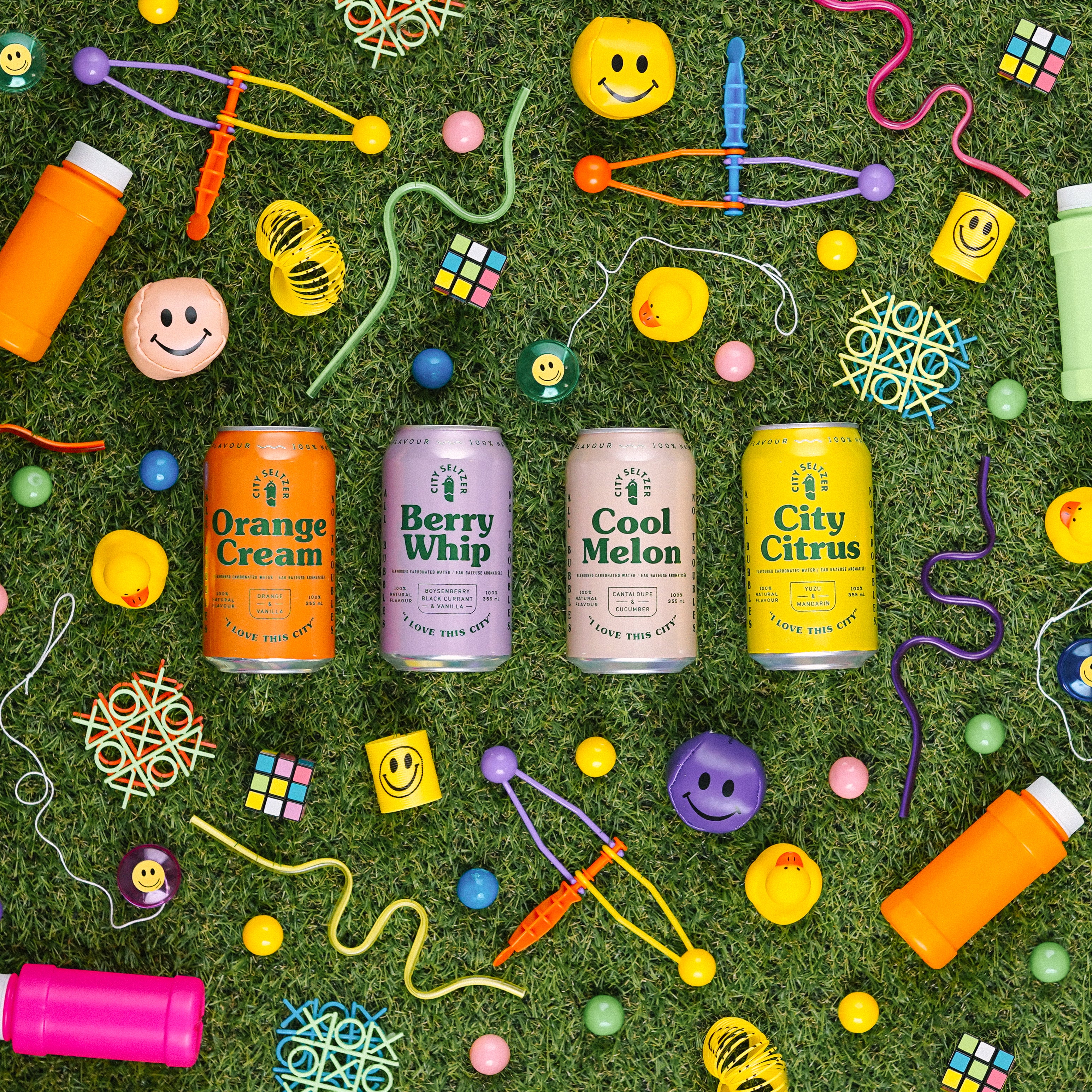Some product ideas come from unexpected places. The non-alcoholic City Seltzer brand, for example, was born at a beer festival.
It’s the brainchild of Dominion City co-founder Josh McJannett and his team. While hosting a beer festival in early 2020, Ottawa-based Dominion City Brewing produced a few cans of creamsicle-flavored seltzer water, in an effort to encourage attendees to hydrate. Customers loved the seltzer so much that the company started producing more of it.
Just four years later, City Seltzer has become a bestseller, and now makes up 20% of the company’s revenue. Recent years have been challenging for beermakers, and moving into seltzers answers ademand. “People’s consumption and habits and attitudes are changing,” Josh says.
Dominion City Brewing essentially is doing what it has always done—locally making a product its team is proud of. Now they’re applying that same philosophy to a non-alcoholic alternative.
Don’t miss an episode! Subscribe to Shopify Masters.
Finding purpose in a new product
Josh says it was exciting as a founder to take on a new challenge and build something new after being in business for several years. “For us to be able to … get into startup mode again, it was very rewarding,” he says.
But the brewers were a bit reluctant to take on making a product that they hadn’t produced before. Amid debates, the creative process began to emerge and, ultimately, the entire team rallied behind the new product. The addition aligned with the brand’s other products, but could be consumed by children or people not wanting to drink alcohol.

Differentiating the seltzer brand
Because his seltzer brand is aimed at a new audience, Josh deliberately differentiated City Seltzer from Dominion City Brewing. He and his team worked with a local boutique design agency to create a brand that was youthful, entrepreneurial, and bright.

Leveraging existing resources
Dominion City Brewing used its existing infrastructure to its advantage, starting with selling City Seltzer to its existing bar and restaurant clients. “It was literally throwing a couple cases of City Seltzer on top of the keg we were dropping off to the local bar,” Josh says.
The brewery could also produce the City Seltzers in-house. The seltzer comes out of a tank in their building that’s normally reserved for beer and into a blank can.
Expanding to new sales channels
After about 18 months, City Seltzer began to expand its distribution network, realizing it was no longer constrained to businesses with a liquor license. “There’s a whole new world of customers out there that we could build a relationship with,” Josh says. And the company chose to build those relationships with customers and retailers directly.
In a crowded market like the non-alcoholic seltzer space, Josh believes a direct-to-consumer approach will set City Seltzer apart. “We have to reach people and communicate some of that humanity, authenticity, and purpose bigger than just trying to sell you something,” he says. That’s why City Seltzer goes out of its way to participate in community events, collaborate on limited-edition flavors, and give back a portion of its proceeds to a local non-profit.
To learn more about City Seltzer and how the brand reflects its community, listen to the full interview on Shopify Masters.



